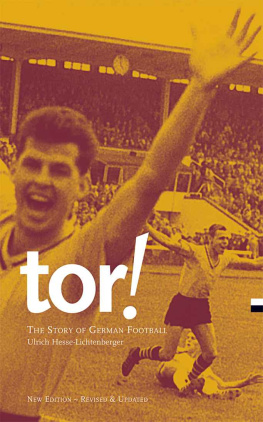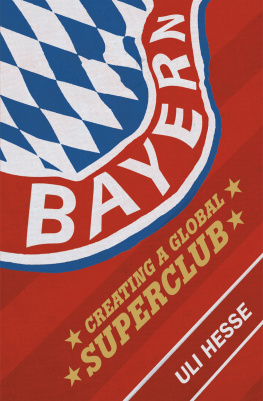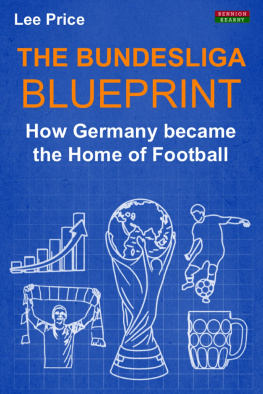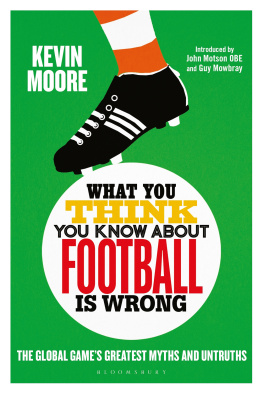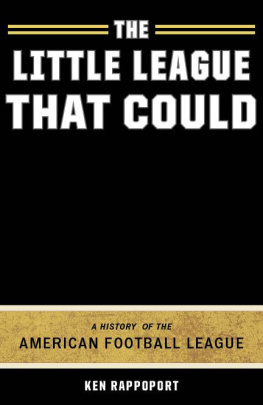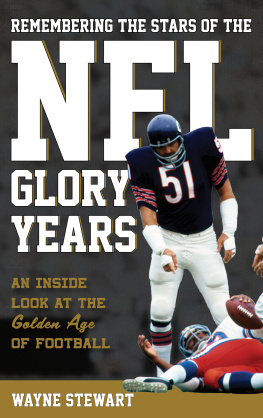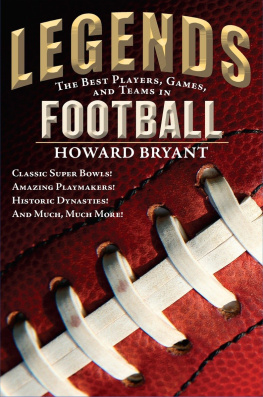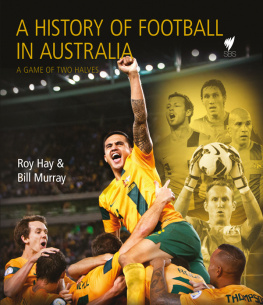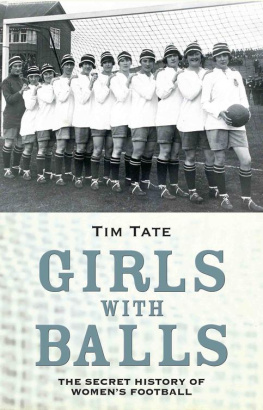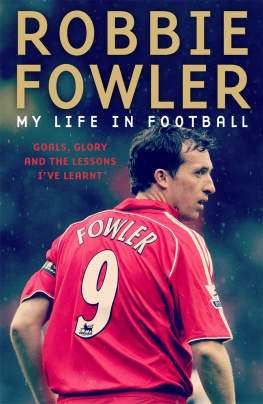Tor!
This book is dedicated to the memory of Walther Bensemann.
I cannot make good, but I can make a gesture.
Tor!
The Story of German Football
Ulrich Hesse
First published in 2002 by WSC Books Ltd
This digital edition published in 2011 by WSC Books Ltd
The Old Fire Station, 140 Tabernacle Street, London EC2A 4SD, UK
www.wsc.co.uk
info@wsc.co.uk
Copyright Ulrich Hesse 2003
All rights reserved. No part of this publication may be reproduced, transmitted, or stored in a retrieval system, in any form or by any means, without permission in writing from the publishers. This book is sold subject to the condition that it shall not, by way of trade or otherwise, be lent, resold, hired out, or otherwise circulated without the publishers consent in any form of binding other than that in which it is published and without a similar condition being imposed on the subsequent purchaser. The moral right of the author has been asserted.
Cover design by Doug Cheeseman
About the Author
Ulrich Hesse was born in Dortmund, 172 days before the 1966 World Cup final. He is a freelance journalist who writes on football and many other subjects for publications at home and abroad. He has written regularly for When Saturday Comes since 1996. He lives 15 minutes from Borussia Dortmunds ground with his wife and son.
Acknowledgments
I have plundered many books and articles, so I have to thank their authors and publishers, especially the Werkstatt Verlag which has put out many club histories. I also contacted a lot of people to check details, among them staff of the Deutscher Fussball-Bund and individuals such as Ulrich and Christian von Berg. You know who you are, thank you. Writing in a language that is not your own puts particular demands on your editors. I would like to thank Mike Ticher and Andy Lyons, and everyone else at When Saturday Comes who has worked on the book, namely Doug Cheeseman, Shane Simpson, Ed Upright and Richard Guy.
Note on German usage
Where towns and cities have an English name that is different from their German one (such as Cologne/Kln), they are referred to by the English version. The exception is when the full name of a football club is used, in which case it is in German (such as 1. FC Nrnberg). And the exception to that is Bayern Munich, simply because its illogical combination of English and German is so familiar to English speakers. Any inconsistencies in usage that may have crept in are there simply to counteract stereotypes about German order and efficiency.
Cover photo
Fans are still taking their seats as Timo Konietzka (right) scores the first goal in the Bundesliga, after only a few seconds of Borussia Dortmunds game at Werder Bremen on August 24, 1963. Lothar Emmerich, in the foreground, said modestly 40 years later: Normally I would have scored myself, but I squared it for Timo and he put it in. Bremen won the game 3-2. Ullstein/DPA
Contents
Introduction
Prologue ~ The Summit
1. On the Turn ~ German footballs struggle for respectability
2. Naming Rites ~ SpVgg and other mysteries
3. The Club, 1918-30 ~ All roads lead to Nuremberg
4. Three Men on a Mission ~ The national team gets serious
5. Angst and Anschluss ~ Football under the Nazis
6. A Matter of Survival ~ Herberger and Schn amid the ruins
7. Gravestones for Terraces ~ Rebuilding in the occupied zones
8. Call Me Mad, Call Me Crazy ~ The miracle of Berne
9. The Bundesliga ~ ...and the Bungsliga
10. Black and White World ~ The politics of Bayern v Gladbach
11. Victory Turns Sour ~ The trials of Helmut Schn
12. Cold Glory ~ Uli Hoeness and Bayerns grim decade
13. Forwards and Upwards ~ The strange world of the GDR
14. Room at the Top ~ The Nineties boom and its fallout
15. Into the Abyss ~ From Derwalls disgrace to the Daum affair
16. A Ray of Light ~ Redemption under Rudi Vller
Epilogue ~ Back to base
Introduction
The first edition of this book was published less than three weeks before the title-holders France played Senegal to open the 2002 World Cup. As it turned out, it was a brief tournament for the French, but a surprisingly long one for an unfancied German team. Consequently, a lot of people who reviewed the book said I must have wished I had waited a bit longer so that it could have ended on a triumphant rather than a sceptical note.
Well, no.
For one thing, the idea behind writing a book on German football for non-Germans was to set a few records straight and allow people to judge us on facts, not cliches. That meant pointing out things that are good and exciting about our game and run contrary to popular opinion. (I didnt even mention that the Bundesliga, often denounced as defensive and boring, was actually the highest-scoring of the big European leagues for every year between 1991 and 2003.) Yet it also entailed not concealing the less agreeable aspects of the story. Such as a game that was played in the Spanish city of Gijn, which served to take all the fun out of following our national team for members of a certain generation my generation.
So I really did not lose sleep over Rudi Vllers side during the weeks in Asia, praying for triumph. On the day Germany met Brazil in the World Cup final, I watched one of the semi-finals of the national Under-19 championship. (This being Germany, the game went to penalties and I almost missed the kick-off in Yokohama.)
Second, the Times was right to say this is not a book about World Cups, because I attempted to paint a larger picture. And things happened after Tor! was published that may be more meaningful for the whole game than four weeks in Japan and South Korea the Kirch crisis, for example.
On the other hand, the same review added that its difficult not to dwell on [World Cups] as landmarks in the story. That is equally true and so this new edition adds a chapter that deals in part with the biggest prize the game conferred in 2002. Although it has to be said that Japan/South Korea offered so many bizarre moments that it is as yet unclear how football history will classify the tournament.
And football history is what this book is primarily about. However, it is unlike two other recent and very good books on football in other European countries, David Winners Brilliant Orange , about Holland, and Phil Balls Morbo , about Spain, both of which explore and explain foreign territory. Thats only natural, as they were written by Englishmen living in these countries, investigating the football culture they have entered. In contrast, I was born in the football culture Im writing about, which makes detached observation tricky.
Also, analysis is not my strong point. Im too much of a habitual doubter to reach conclusive, unshakeable opinions about too many things. After all, a wizened, wise man from Mannheim you will often meet on the pages to follow once said: The more experience I have, the more doubts I nurture. So Im not going to tell you to ditch your preconceptions about German football and replace them with my own. Instead, I would like to give you the stories that form the background against which you may test what you think German football is like.
That is not to say this book is an objective account, made up of only statistics and results. First, it is one of my unshakeable opinions that people shape events as much as vice versa, so you will find lots of people in here. Second, histories are never objective, and you will notice that I have more sympathy for some of these people, usually players, and less for others, usually officials. That may be unfair, but I share the tendency of many fans to attribute most of what is good about the game to the people who play it, and most of what is bad to those who govern it.

